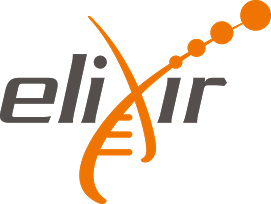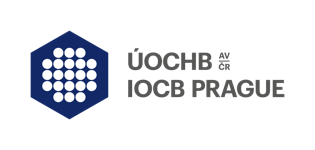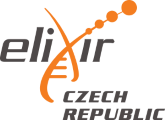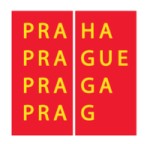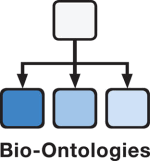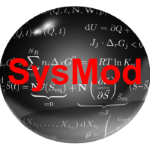ISMB/ECCB 2017 Workshops
- WK01: Workshop on Education in Bioinformatics (WEB): Open Science platforms for bioinformatics education
- WK02: Bioinformatics Core Workshop: Standing on Two Legs: Managing Operations in a Core and Ensuring Scientific Reproducibility
WK01: Workshop on Education in Bioinformatics (WEB): Open Science platforms for bioinformatics education
Organizer(s):
Dr. Maina Bitar is currently a Post-Doctorate in Australia and has been involved with education initiatives for a few years. She has been a member of the ISMB Student Council (ISMB-SC) Education Committee and former head of its Internship Committee. In Brazil, she has been a member of the Brazilian Association on Bioinformatics and Computational Biology (AB3C) consultive committee, a member of the ISCB Education committee and also the student representative on the board of ISCB.
Dr. Michelle D. Brazas is the Program Manager for Informatics and Bio-computing at the Ontario Institute for Cancer Research. She was previously the lead for the Canadian Bioinformatics Workshops (bioinformatics.ca) and Manager of Bioinformatics Education at OICR. She is also an executive on GOBLET and a member of the ISCB Education committee, as well as the ISCB Board of Directors.
Dr. Fran Lewitter is Founding Director of Bioinformatics and Research Computing, retired, at Whitehead Institute for Biomedical Research. The group develops materials and provides training to biologists in the Institute. In addition, Fran was a member of the ISCB board of directors from 2008 to 2017 and has held a leadership role on the Education committee since 2008. She is also the former Education Editor for PLOS Computational Biology and currently an Editor for its Ten Simple Rules collection and on its Editorial Advisory Board.
Dr. Patricia M. Palagi is Team Leader for Training at the SIB Swiss Institute of Bioinformatics, Switzerland, and has been involved in bioinformatics education and training for several years. In the past, she has co-organised the ISCB workshops: ECCB12, WEB13, WEB14, WEB15 and WEB16. Patricia is member of GOBLET (Global Organization for Bioinformatics Learning, Education and Training) and of the ISCB Education committee.
Presentation Overview:
Teaching bioinformatics effectively requires deeper consideration than most other subject areas because of bioinformatics inherent data and compute needs. Centralizing all presentations, data, tools, exercises, quizzes and answer keys in a single, flexible location is ideal for both the teacher and the student. Recent open source technologies such as Wikipedia, BioStars, and other open source repositories such as GitHub, have been used by bioinformatics faculty to change their bioinformatics classroom. While not intended as education tools, these platforms have facilitated coordination and development of training materials, are flexible enough to allow instant content changes, and have supported student interaction with the training content both within and beyond the classroom.
Through a series of presentations show-casing the repurposing of open source platforms for bioinformatics education, this workshop aims to highlight how these platforms can be effectively used in educational environments.
This workshop will consist of four presentations on available open source platforms that have been repurposed as educational platforms: Wikipedia, Biostars, ELIXIR's TeSS and GitHub, each highlighting what the platform has been able to facilitate and how their bioinformatics classrooms have improved; and will conclude with an open discussion on other case examples from the audience where open source tools that have similarly been repurposed.
B.F Francis Ouellette, Vice President of Scientific Affairs, Génome Québec, Associate Professor, Cell and Systems Biology, University of Toronto; and the Canadian Bioinformatics Workshop series Scientific Director. Prior to joining Genome Quebec in February 2017, Francis was Associate Director and lead investigator in the Informatics and Bio-computing platform at the Ontario Institute for Cancer Research, where he was involved in numerous large scale, international cancer genome projects including ICGC and the Cancer Genome Collaboratory. Francis is also the founder and Scientific Director of the Canadian Bioinformatics Workshop (CBW) series that offers a number of short bioinformatics workshops throughout Canada, and throughout the year (bioinformatics.ca).
Session Description:
Open access (OA) refers to online research outputs that are free of all restrictions on access and use. Most researchers associate the term OA with publications, but the impact of OA on research would be much greater if OA principles are additionally applied to data, software tools, and platforms, including education platforms. Through examples from my own research and bioinformatics training experiences, I will illustrate how using OA available resources and creating OA resources particularly in bioinformatics training environments, has helped foster better education and ultimately better research.
Dr. Welch has more than twenty-five years of research experience in the area of high performance computing. His research has produced three successive generations of adaptive resource management middleware for dependable, distributed systems and has resulted in four patents. Currently, Professor Welch directs the Bioinformatics Laboratory at Ohio University, where he leads a team of researchers who develop computational methods for discovering genomic, transcriptomic, epigenomic, and proteomic markers associated with disease (and other) phenotypes. Welch is the founding director of Ohio University’s Bioinformatics Certificate Programs and is the PI of the Ohio Department of Higher Education Bioinformatics Scholarship Program. Dr. Welch serves on the Board of Directors of the International Society for Computational Biology, is the Co-chair of ISCB's Education Committee, and leads the Curriculum and Competencies Task Force of ISCB's Education Committee.
Session Description:
The International Society for Computational Biology and WikiProject Computational Biology conduct the annual Wikipedia Competition, which gives awards for the best contributions to computational biology-related articles. Entry to the international competition is open to students and trainees of any level, both as individuals and as groups. The presenter will describe how the competition was used as the basis for a class assignment in a one semester bioinformatics course. Learning goals and assignment design will be discussed, and selected student projects will be presented. The session will conclude with lessons learned and future plans.
Ann Meyer, Ontario Institute for Cancer Research. Ann is the coordinator for the Canadian Bioinformatics Workshops (CBW, bioinformatics.ca) series and is the Knowledge and Research Exchange manager at the Ontario Institute for Cancer Research. She holds a PhD in Plant Agriculture from the University of Guelph and did a post doctoral fellowship in pathobiology.
Session Description:
Ann Meyer will illustrate how bioinformatics.ca has recently used the GitHub code repository platform to facilitate bioinformatics continuing education workshops.
Niall Beard is the project manager for ELIXIR TeSS. He is based at the University of Manchester and has been with the project since its inception. He is also leading the creation of specifications for describing online training resources in schema.org<http://schema.org> as part of the Bioschemas (http://bioschemas.org) group.
Session Description:
The TeSS (https://tess.elixir-europe.org) portal was designed to offer an at-a-glance view of the ELIXIR training landscape, presenting thousands of training materials, resources and events in an easy-to-use, filterable, feature-rich environment. Users can discover training information relevant to their scientific topic of interest, including different types of training material, tutorials on ELIXIR resources, bioinformatics courses, workshops and schools, and so on. TeSS also provides a 'Training Workflow' feature, which allows trainers to link common bioinformatics tasks, and their associated software tools and databases, within graphical workflow representations. These guide trainees step-by-step through typical bioinformatics analyses, providing links to external resources, background information, further reading, etc., along the learning pathway.
Session Description:
This open audience session will be a forum for discussion and exchange of strategies and approaches for applying other open source tools and platforms to the bioinformatics training space. Come share your experiences and ideas on novel education platforms for bioinformatics training with the audience. Dr. Michelle Brazas, OICR, will moderate this discussion.
WK02: Bioinformatics Core Workshop: Standing on Two Legs: Managing Operations in a Core and Ensuring Scientific Reproducibility
Organizer(s):
Madelaine Gogol, Stowers Institute, United States
Hans-Rudolf Hotz, Friedrich Miescher Institute for Biomedical Research, Switzerland
Hemant Kelkar, University of North Carolina, United States
Alastair Kerr, University of Edinburgh , United Kingdom
Brent Richter, Partners HealthCare of Massachusetts General and Brigham and Women’s Hospitals, United States
Alberto Riva, University of Florida, United States
Presentation Overview:
The workshop will present and then provide an in-depth discussion of two fundamental aspects of core facilities: Operational Management of a Core and, in the second hour, methods and processes to assure reproducibility of a core’s work product through presentation of two examples. Members of core facilities will share their experience and insights via short presentations and in-depth panel discussions. Active audience participation is expected.
The workshop is split into two sessions with a required break between. Each session will have two 15 minute talks followed by a 30 minute discussion.
Introduction
Brent Richter, Partners HealthCare of Massachusetts General and Brigham and Women’s Hospitals
The Bioinformatics Core Facilities COSI: http://bioinfo-core.org/index.php/Main_Page
Session Description:
Good quality control procedures are essential for sequencing facilities. The SciLifeLab National Genomics Infrastructure is an accredited facility that processes thousands of samples every month, driving us to develop high-throughput QC procedures. We use a LIMS, a bespoke web system and most recently MultiQC - a tool custom developed to summarise analysis log files and produce reports that visualise key sample metrics.
This talk will describe how the different systems integrate and how use of MultiQC results for both project level reporting and long term monitoring assist in reproducibility.
Session Description:
SUSHI is an agile data analysis framework that relieves bioinformaticians from the administrative challenges of their data analysis. SUSHI lets users build reproducible data analysis workflows from individual applications and manages the input data, the parameters, meta-information with user-driven semantics, and the job scripts.





